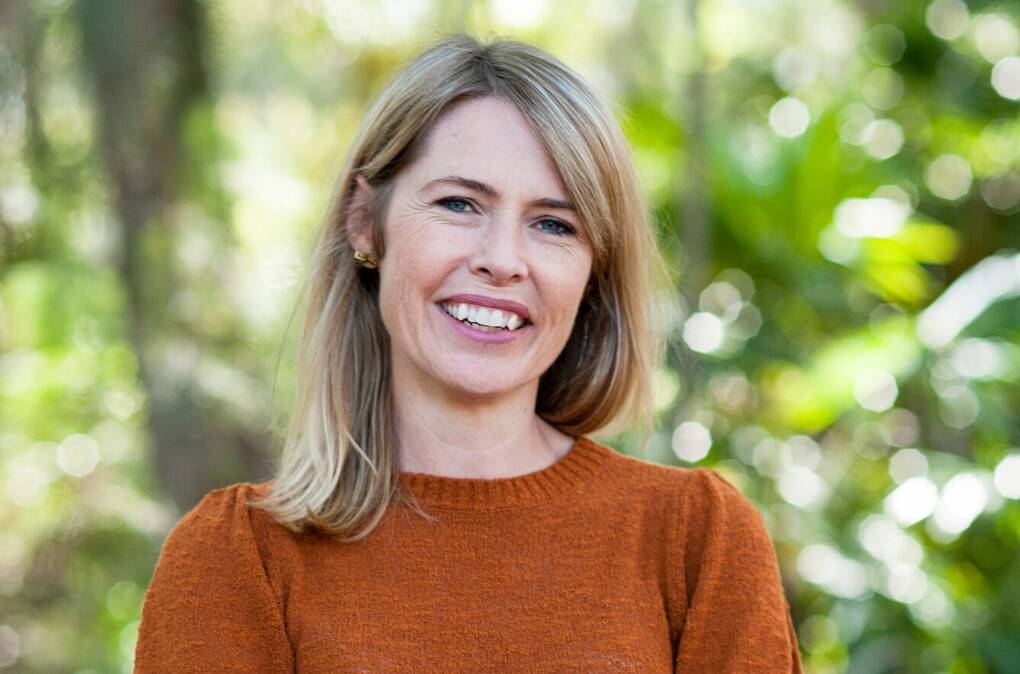
A leading Hunter advocacy group has called on the state and federal governments to start implementing strategic plans for the region.
The Committee for the Hunter has published its budget submissions for the upcoming state and federal budgets, including big-ticket items like high-speed rail to Sydney, more social housing and Newcastle Airport's terminal upgrade.
Chief executive Alice Thompson said the committee hoped Newcastle's role in the NSW government's newly expanded Greater Cities Commission would start turning planning into reality.
"Fundamentally, we're looking at how to get that greater link between plans and government priorities and budgets," she said.
"We're welcoming a strong role for the Greater Cities Commission to get that direct line to the top of government to coordinate infrastructure and service agencies and get things moving."
Premier Dominic Perrottet said in December that the Greater Sydney Commission would expand to include Newcastle and Wollongong, a move the Hunter committee has welcomed.
"We're very interested in local representation," Ms Thompson said.
"The things that we're looking at are that this focuses on delivery rather than starting planning from scratch.
"We know what the problems are. We know what the opportunities are, particularly associated with the economic change in our region.
"We know what the major catalytic bits of infrastructure are, and they don't just sit in government hands."
Among the other items on the committee wish list are clearing the way for 40,000 new house lots and 590 hectares of employment land "stuck in the planning pipeline" and removing restrictions on Port of Newcastle developing a large-scale container terminal.
"It's largely transport-related issues," Ms Thompson said of the state planning "backlog". "You have a regional plan or a [Greater Newcastle] metropolitan plan, but it's not tied directly into the transport plan.
"And, of course, there's no designated fund or allocation for the Hunter. Ours is thrown up with the rest of the state and there's considerable demands. Our region is in housing crisis."
The committee's budget recommendations also include setting up a dedicated office to provide "tailored engagement, direction and services" to small and medium enterprises which serve the coal industry.
Ms Thompson said AGL's decision this week to bring forward the closure of Bayswater power station showed Hunter businesses needed help to prepare for change.
"I've seen there is a gap, and I don't think anyone is really asking for it," she said.
"We've seen with AGL's announcement to bring the closure forward by at least five years, and they've clearly left the door open for further changes in the market, that's eight years from now.
"When we talk about coal industries, it's not just coalmining, it's coal-fired power generators and their workforce.
"A lot of the conversation is around supporting workers. Equally, what we've proposed is you need a front door for SMEs."
Committee for the Hunter federal budget submission summary of recommendations
1. Urgently improve and increase the stock of social and crisis housing in the Hunter.
2. Fund a program of enabling infrastructure to unlock over 40,000 homes and 590 hectares of employment land stuck in the planning pipeline.
3. Commit to high-speed rail between Sydney and Newcastle with a target travel time of 45 minutes.
4. Remove restrictions in the Port of Newcastle's port commitment deeds impeding the port's diversification and the Multi-purpose Deepwater Terminal.
5. A shared solution to deliver the Newcastle Airport terminal upgrade.
6. Establish a dedicated Hunter office to promote, attract and concierge investment, starting with clean energy, hydrogen and low carbon.
7. Continue co-funding the Hunter Regional Hydrogen Technology Cluster (NewH2).
8. Scope a national hydrogen training and testing centre located in the Hunter Hydrogen Hub.
9. Continued support of the Port of Newcastle Hydrogen Project.
10. Fund a hydrogen-fuelled waste trucks demonstration project in Lake Macquarie.
11. Establish an industry-facing Energy Integration Lab.
12. More support and funding to sustain art, culture, events and creative industries and institutions through pandemic impacts.
13. Funding to transform Singleton's town centre as a destination as part of the Singleton bypass.
14. Improve Hunter telecommunications infrastructure and services.
15. Undertake a workforce and skills gap assessment aligned to sectors of competitive advantage and design a new educational model for the Hunter.
16. "Return to the Regions" international student package of scholarships, marketing and visa incentives.
17. Accelerate progress on the 17 socio-economic targets and improve the lives of Aboriginal people in the Hunter and surrounds within a generation.
18. Establish a dedicated office to provide tailored engagement, direction and services to SMEs affected by change in coal industries to help them diversify.
19. Partner with the NSW government to support communities exposed to changes in coal industries and the diversification of the Hunter economy.
20. Partner with the University of Newcastle, working across VET and industry, to map and resource a package of skills and pathways to retrain displaced regional workers.
21. Address the shortfall of funding for the GP Access after-hours service.
22. Establish a regional health research hub at the new Maitland Hospital.
23. Continued focus and investment to improve services and access to mental health services for young people living in the Hunter.
24. Ensure investments for major catalytic projects in the region are integrated in a plan for the diversification of the Hunter economy and a tri-level intergovernmental agreement to deliver them.
In the news
-
Kenneth Grant fatal hit-and-run: Tony Greenfield's family condemn selfish refusal to accept responsibility
- Muswellbrook man among latest to die with COVID-19 in the Hunter
- NSW, Qld, ACT koalas officially endangered
- Gladys Berejiklian to join Optus







